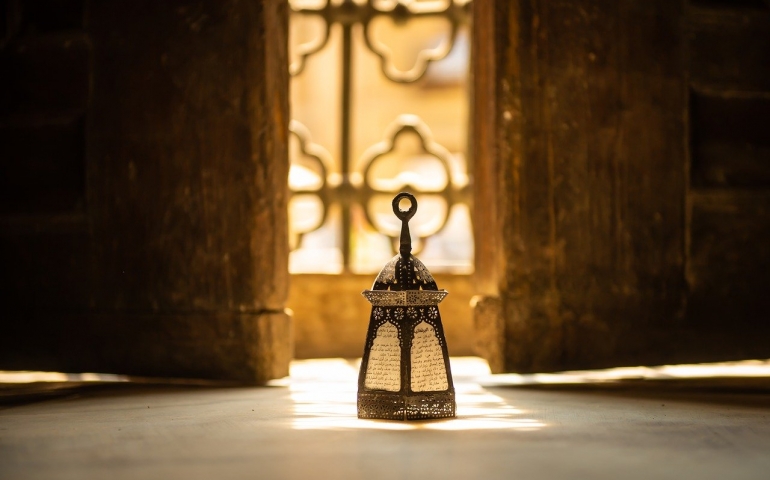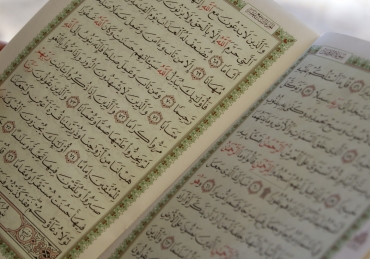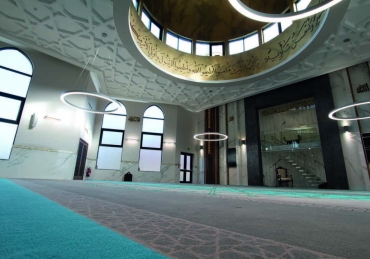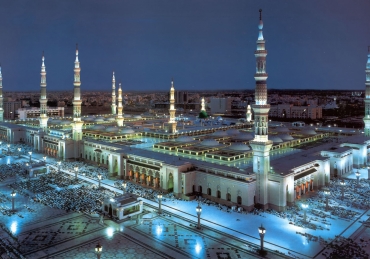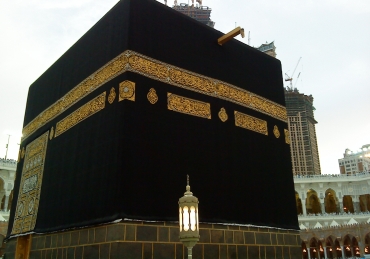Should Masjids open on 15 June?
Question
The Government has announced today (7 June) that religious places can open for individual prayer from 15 June. This is the first stage which will eventually lead to communal prayers in the near future. In light of this development, should Masjids open on 15 June, and if so, will it be more virtuous to perform Farḍ Ṣalāh at home in congregation or in the Masjid individually?
بسم الله الرحمن الرحیم
Answer
(Important note added on 11 June: The Government has confirmed that places of worship can open from Saturday 13 June for individual worship. Therefore, Masjids that can safely open on 13 June should consider opening with all the necessary safeguards. For further details, refer to this link).
The decision to allow religious places to open on 15 June for individual worship is a welcome first step on the journey to establish communal worship. This will enable places of worship to open in a phased gradual manner and thereby minimise risk. Accordingly, Masjids should start to make all the necessary preparations to ensure that the re-opening is safe. Advance planning will enable Masjids to manage the risk and continuously review and improve their systems and processes over the coming weeks before communal prayers begin.
It is vital that Masjids undertake risk assessments and all the safeguards are in place prior to opening. Particular attention should be paid to the Government’s guidance which will be released very soon. Masjids should undertake regular cleaning and hand sanitisers should be available. People should be advised to perform ablution at home. Exceptions should be made based on need, using a common sense approach, particularly for travellers. Responsibilities must be clearly allocated and the Masjids should be adequately staffed. Consideration should also be given to open for as many hours possible so that the worshippers are spread out. Worshippers should also cooperate fully with the responsible people of the Masjids, follow their instructions and exercise patience.
Whilst the primary function of the Masjid includes congregational Ṣalāh, the Masjid can be used for individual worship including Ṣalāh, the remembrance of Allah, the recitation of the Quran and supplicating to Allah. The Prophet ﷺ described the purpose of Masjids in a ḥadīth, “They are for the remembrance of Allah, Ṣalāh, and the recitation of the Quran” (Ṣaḥīḥ Muslim, 285). In addition, at this crucial juncture of the pandemic, many people would find peace and comfort in the Masjids. This would contribute to their emotional well-being. The Government recognises this and it is therefore important to give people the choice to visit the Masjid for individual worship if they wish to do so.
Therefore, Masjids that can safely open on 15 June or thereafter should open for individual worship. Masjids and worshippers must ensure that the Government’s forthcoming guidance is followed. Communal worship is very important to Muslims and also to many other faith communities, and it is hoped that the Government will also consider permitting this in the coming weeks.
In relation to the final part of the question, it would be valid to perform the obligatory Ṣalāh at home or the Masjid. However, if the choice is between performing Ṣalāh individually at home or the Masjid, then the Masjid is the preferred option. If, however, the choice is between performing the Farḍ Ṣalāh individually in the Masjid or in congregation at home, the latter is preferred, because congregational Ṣalāh is more virtuous. Nevertheless, one should attempt to visit the Masjid at least once a day, perform Nafl Ṣalāh and supplicate to Allah Almighty. The importance of remaining attached with the Masjid cannot be stressed enough. The Prophet ﷺ mentions that a person whose heart is attached to the Masjid will be granted shade by Allah Almighty in the hereafter (Ṣaḥīḥ al-Bukhārī, 660). Another ḥadīth mentions that when a person has a habit of visiting the Masjid regularly, we should bear witness to his faith (Sunan al-Tirmidhī, 3093).
Finally, as mentioned in earlier answers and guidelines, those with suspected or confirmed Covid-19 should continue to perform Ṣalāh at home. The same applies to vulnerable people with underlying health conditions. It is of paramount importance that the Government’s guidelines and regulations are adhered to at all times. We must also continue to recognise and appreciate the sacrifices made by the doctors and other professionals in the health and public sectors and pray for their safety and well-being.
May Allah Almighty protect us all and remove this pandemic so that we are able to resume congregational Ṣalāh in the Masjids. Āmīn.
Allah knows best
Yusuf Shabbir
17 Shawwāl 1441 / 9 June 2020
(For Q&As, guidance & articles regarding Covid-19, click here)
This answer has been endorsed by the following scholars:
- Mufti Umar Farooq (London)
- Mufti Shabbir Ahmad (Blackburn)
- Mufti Muhammad Tahir (Blackburn)
- Mufti Ikramul Haq (Blackburn)
- Mufti Yusuf Sacha (Batley)
- Mufti Ibrahim Raja (Blackburn)
- Mufti Muhammad Saleh (Blackburn)
- Qari Mohammad Ismail Rashid (Chaplain, University of Sheffield and Lead Imam, Birmingham Central Mosque, Jamiat Ulama-e-Britain)
- The Executive Committee of Rabetah al-Ulama al-Islamiyah, Batley UK
- Mufti Hashim Ravat (Coventry)
- Maulana Marghoob Ahmed Lajpuri (Dewsbury)
- Maulana Ahmad Sarkar (Batley)
- Mufti Dr Abdur-Rahman ibn Yusuf Mangera (ZamZam Academy and Whitethread Institute, London)
- Mufti Qari Muhammad Aslam (Bolton)
- Mufti Iqbal Gangat (Coventry)
- Mufti Javid Pathan (Preston)
- Mufti Abu Sharaheel Abubakr Karolia BSc QTS (Batley)
- Mufti Hanif Patel (Blackburn)
- Mufti Khalid Ibrahim (Preston)
- Shaykh Khalil Ahmad Kazi (Madina Academy, Dewsbury)
- Shaykh Ebrahim Noor BSc (Islamic Academy of Coventry)
- Shaykh Yunus Dudhwala (Head of Chaplaincy & Bereavement Services, Barts Health NHS Trust, London)
- Imam Fazlurrahman Hassan (Chaplain, East Lancashire NHS Trust)
- Shaykh Junaid Ingar (Preston)
- Shaykh Elyas Desai (Preston)
- Mufti Sajid ibn Moosa (Imam of Masjid Quba, Batley, Al-Fajr Academy)
- Qari Saeed Makda (Batley)
- Shaykh Shoayb Patel (Batley)
- Shaykh Hasan Ibrahim (Batley)
- Shaykh Habibullah Munshi (Preston)
- Mufti Vasiyullah Bhayat (Preston)
References
قال الله تعالى: في بيوت أذن الله أن ترفع ويذكر فيها اسمه يسبح له فيها بالغدو والآصال. قال ابن جرير الطبري في تفسيره (١٩/١٩٠): وأذن لعباده أن يذكروا اسمه فيها. وقد قيل: عني به أنه أذن لهم بتلاوة القرآن فيها. ثم أسند عن ابن عباس يقول: يتلى فيها كتابه. قال ابن جرير: وهذا القول قريب المعنى مما قلناه في ذلك، لأن تلاوة كتاب الله من معاني ذكر الله، غير أن الذي قلنا به أظهر معنييه، فلذلك اخترنا القول به، انتهى۔
وعن أنس بن مالك قال: بينما نحن في المسجد مع رسول الله صلى الله عليه وسلم. إذ جاء أعرابي فقام يبول في المسجد، فقال أصحاب رسول الله صلى الله عليه وسلم: مه مه، قال: قال رسول الله صلى الله عليه وسلم: لا تزرموه دعوه، فتركوه حتى بال، ثم إن رسول الله صلى الله عليه وسلم دعاه فقال له: إن هذه المساجد لا تصلح لشيء من هذا البول ولا القذر، إنما هي لذكر الله عز وجل والصلاة وقراءة القرآن، أو كما قال رسول الله صلى الله عليه وسلم، قال: فأمر رجلا من القوم فجاء بدلو من ماء فشنه عليه، رواه مسلم (٢٨٥)۔
وعن أبي هريرة عن النبي صلى الله عليه وسلم قال: سبعة يظلهم الله في ظله، يوم لا ظل إلا ظله: الإمام العادل، وشاب نشأ في عبادة ربه، ورجل قلبه معلق في المساجد، الحديث، رواه البخاري (٦٦٠)۔
وعن أبي سعيد قال: قال رسول الله صلى الله عليه وسلم: إذا رأيتم الرجل يتعاهد المسجد فاشهدوا له بالإيمان، فإن الله تعالى يقول: إنما يعمر مساجد الله من آمن بالله واليوم الآخر وأقام الصلاة وآتى الزكاة، الآية، رواه الترمذي (٢٦١٧) وقال: هذا حديث غريب حسن. وفي رواية له (٣٠٩٣): “يعتاد” عوض “يتعاهد”۔
وعن عبد الله بن عمر أن رسول الله صلى الله عليه وسلم قال: صلاة الجماعة تفضل صلاة الفذ بسبع وعشرين درجة، رواه البخاري (٦٤٥)۔
وعن عائشة أنها قالت: صلى رسول الله صلى الله عليه وسلم في بيته وهو شاك، فصلى جالسا وصلى وراءه قوم قياما، فأشار إليهم أن اجلسوا، فلما انصرف قال: إنما جعل الإمام ليؤتم به، فإذا ركع فاركعوا، وإذا رفع فارفعوا، رواه البخاري (١١١٣ و ٦٨٨). ورواه البخاري (٣٧٨) من حديث أنس، قال ابن رجب في فتح الباري (٢/٤٥٩): وفي الحديث دليل على أن المريض الذي يشق عليه حضور المسجد، له الصلاة في بيته مع قرب بيته من المسجد. وفيه أن المريض يصلي بمن دخل عليه للعيادة جماعة، لتحصيل فضل الجماعة، انتهى۔
وعن الحسن البصري قال: كان أصحاب محمد صلى الله عليه وسلم إذا دخلوا المسجد وقد صلي فيه صلوا فرادى، رواه ابن أبي شيبة (٧١١١)۔
وقال في الأصل (١/١٤٠، طبعة قطر): قلت: أرأيت الرجل تفوته صلاة الجماعة في مسجد حيه أترى له أن يأتي مسجدا آخر يرجو أن يدرك الصلاة؟ قال: إن فعل فحسن، وإن صلى في مسجد حيه فحسن، انتهى. قال السرخسي في المبسوط (١/١٦٦): لحديث الحسن قال: كانوا إذا فاتتهم الجماعة فمنهم من يصلي في مسجد حيه ومنهم من يتبع الجماعة، ومراده الصحابة، ولأن في كل جانب مراعاة جهة وترك أخرى، في أحد الجانبين مراعاة حرمة مسجده وترك الجماعة، وفي الجانب الآخر مراعاة فضيلة الجماعة وترك حق مسجده، فإذا تعذر الجمع بينهما مال إلى أيهما شاء، والأولى في زماننا إن لم يدخل مسجده بعد أن يتبع الجماعة، فإن دخل مسجده صلى فيه، انتهى۔
وقال الحدادي في الجوهرة (١/٥٩) ووافقه عبد الرحمن شيخي زاده في مجمع الأنهر (١/١٠٧): ولو صلى في بيته بزوجته أو جاريته أو ولده فقد أتى بفضيلة الجماعة، ولو نام أو سها أو شغل عن الجماعة فالمستحب أن يجمع أهله في منزله فيصلي بهم، وقد قال عليه السلام: من صلى أربعين يوما في جماعة يدرك التكبيرة الأولى كتب الله له براءتين براءة من النار وبراءة من النفاق، انتهى. وقال ابن نجيم في البحر (١/٣٦٦) عن السراج الوهاج للحدادي: لو صلى في بيته بزوجته أو جاريته أو ولده فقد أتى بفضيلة الجماعة، انتهى. وقال أخوه عمر بن نجيم في النهر (١/٢٣٨): لو صلى بنحو زوجته في بيته نال فضلها، انتهى. وقال الشرنبلالي في المراقي (ص ٢٨٧): ويحصل فضل الجماعة بواحد ولو صبيا يعقل أو امرأة ولو في البيت. قال الطحطاوي: لو صلى في بيته بزوجته أو جاريته أو ولده فقد أتى بفضيلة الجماعة اهـ كذا في الشرح ولكن فضيلة المسجد أتم، انتهى۔
والحديث المذكور في كلام الحدادي رواه الترمذي (٢٤١) وابن الأعرابي في معجمه (١٢٠٦) والبيهقي في الشعب (٤/٣٤٥) وابن الجوزي في العلل (١/٤٣٥)، ورجح الترمذي وقفه، لكن جزم علي القاري في المرقاة (٣/٨٨٠) أنه في حكم المرفوع. وأعله الترمذي والدارقطني في العلل (١٢/٧٧، وانظر ٢/١١٨) وأقره ابن الملقن وابن حجر في التلخيص الحبير (٢/٦٨). قال ابن الملقن في البدر المنير (٤/٤٠١) الفضائل يتسامح في أحاديثها ما لم ينته إلى الوضع، انتهى. وراجع ذخيرة العقبى في التكبيرة الأولى للعبد الضعيف۔

